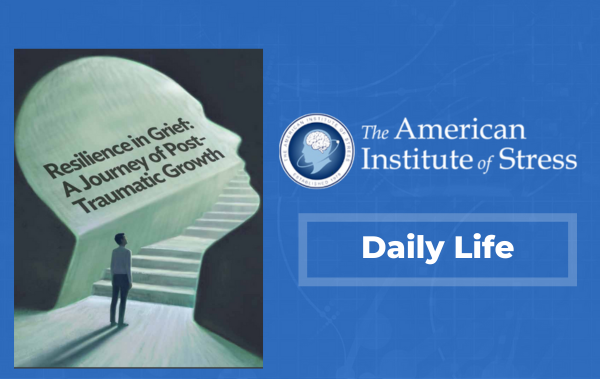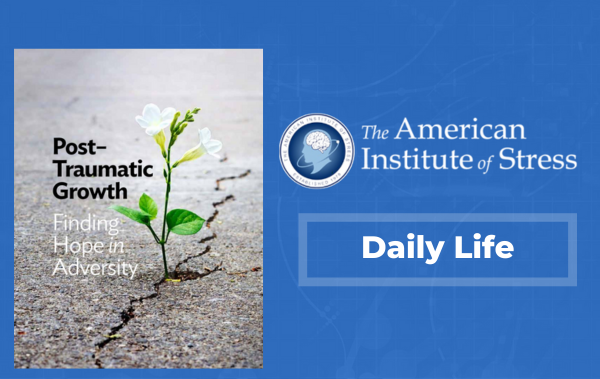 Your brain stressed out — but in a good way! 🤯
Your brain stressed out — but in a good way! 🤯
Last week, I wrote about all the bad things that can happen to your brain when you’re too stressed for too long, including seriously scary long-term consequences like depression and dementia. I received some understandably concerned responses from people who are also living through the year 2020. But stress isn’t all bad! In fact, some research suggests that stress can be protective for the brain.
- A study conducted by researchers in the Netherlands found that people who had mild to moderate stressful life events in old age, like the illness — but not death — of a loved one, had less cognitive decline than people who experienced either no stress or a very stressful event. Another study by epidemiologists at Johns Hopkins University found that people who were caretakers for a loved one lived 18% longer than people who didn’t have to take on that responsibility.
- The theory is that these types of challenging, stressful situations in which you’re forced to adapt and change (like this pandemic) cause neurons to grow new pathways in the brain. Those new connections between brain cells, called synapses, are at the root of learning and memory, and they make the brain more resilient by offsetting the loss of other connections that typically occurs with old age.
- The more synapses you have, the better protected you are against cognitive decline and dementia. In fact, research has shown that people with more of this so-called cognitive reserve don’t show memory loss or other symptoms of dementia, even if their brains have all the signs of Alzheimer’s disease.
- The critical neurochemical in this process is noradrenaline, also called norepinephrine. Noradrenaline is the chemical that triggers the “fight or flight” stress response. In addition to all the physiological changes it causes (faster heart rate, sweaty palms, dilated pupils), noradrenaline also helps brain cells create new connections.
My neuroscientist celebrity crush, David Eagleman (what, like you don’t have one?), supported this idea in an interview with Elemental last week. He said that the stress and novelty of the pandemic is actually good for your brain.
This is the one silver lining of Covid. It knocks us all off our hamster wheels, of doing things in a particular way, and forces everyone to think of new ways of doing things. Which is actually, cognitively, quite good for you. In that sense, all our brains are forced to be more exercised than normal. Challenging your brain with novelty appears to provide cognitive protection.
So, really, the stress tsunami that is 2020 could be beneficial for our brains! Still doesn’t seem worth the trade-off, but I’ll take any upside at this point.
Try this to regain control of your stress
It’s important to recognize that for many people, pandemic stress is hardcore. If you’ve gotten sick or experienced the death of a loved one, or if you’ve lost your job or your work is high risk, the challenges you’re facing are not in the mild to moderate category. If this is you, try not to let your stress overwhelm you (easier said than done, I know).
One of the best things you can do to regain control over a stressful situation is take a few slow, deep breaths. By now, you’ve probably heard this advice dozens of times (including from Elemental), and while it sounds overly simple, there is some seriously cool science behind why it works.
Irish psychologist Ian Robertson, author of the book The Stress Test, explains in a very helpful video on managing stress and burnout during the pandemic that it all comes back to noradrenaline. Too much stress leads to too much noradrenaline, which can be overwhelming and lead to feelings of anxiety. Breathing helps control levels of noradrenaline in the brain. A slow, deep breath — Robertson recommends breathing in for five counts and out for six — reduces the amount of carbon dioxide in your brain, and that in turn lowers noradrenaline levels to back to their sweet spot.
I highly recommend checking out Robertson’s video for other pandemic stress management strategies. Another one of his tips? Celebrating little wins throughout the day with a cup of tea. ☕️
For my fellow brainiacs
- ⏰ Does time seem a little wonky these days? Blame cells in the supramarginal gyrus. Research suggests these time-sensitive neurons can get fatigued and skew your perception of time.
- 💔 Get your tissues ready. A new documentary depicts Robin Williams’ decline with Lewy body dementia.
- 🧑🏾🦱 A large meta-analysis indicates ADHD has been over-diagnosed in Black children. The researchers say the results suggest racial bias in how the condition is assessed.
- 🏈 Somehow, it’s football season. A fascinating article in the Washington Post details scientists’ quest to diagnose the neurodegenerative disease CTE in players while they’re still alive.
By Dana G Smith





